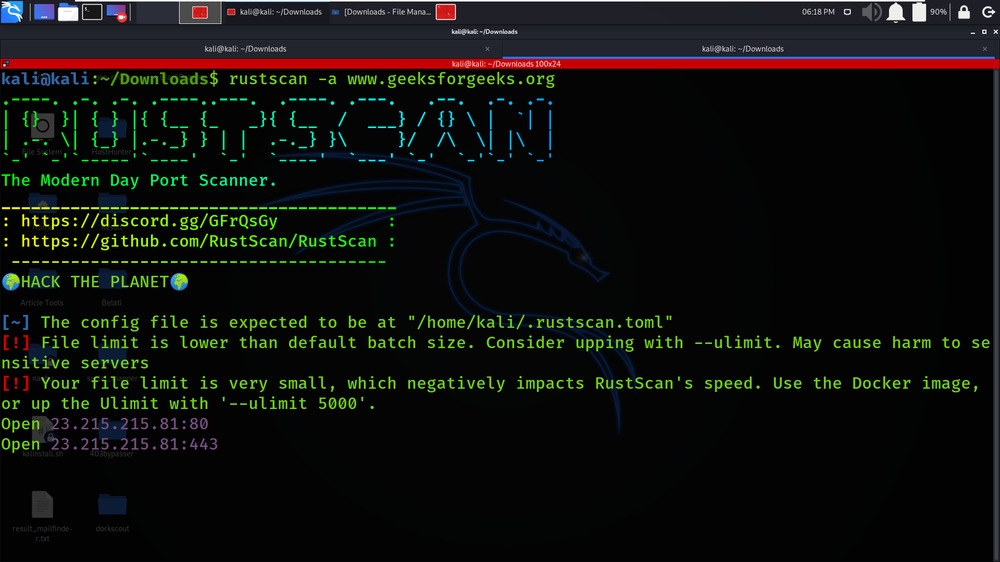1. Nmap (Network Mapper):
The OG reconnaissance tool, Nmap scans networks to discover hosts, services, operating systems, and vulnerabilities. It’s free, open-source, and highly customizable. (https://nmap.org/)
2. Metasploit:
A powerhouse for exploit development and execution, Metasploit offers a vast library of exploits and tools to test vulnerabilities. While not the only option anymore, it’s still a popular choice. (https://www.metasploit.com/)
3. Nikto:
This free and open-source web server vulnerability scanner helps you identify potential security weaknesses in web applications and servers. It’s easy to use and provides detailed reports. (https://cirt.net/nikto2/)
4. Burp Suite:
The go-to platform for web application security testing, Burp Suite offers manual and automated tools for identifying and exploiting vulnerabilities in web apps. (https://portswigger.net/burp)
5. Nessus:
A widely used vulnerability scanner, Nessus identifies security weaknesses in networks, systems, and applications. It’s powerful and comprehensive but can be resource-intensive. (https://www.tenable.com/products/nessus)
6. John the Ripper:
A classic password-cracking tool, John the Ripper helps test password strength and identify weak passwords. Use responsibly! (https://github.com/openwall/john)
7. Wireshark:
The industry standard for network protocol analysis, Wireshark captures and displays network traffic in real-time, allowing you to see what’s happening on your network. (https://www.wireshark.org/)
8. ZAP (Zed Attack Proxy):
This free and open-source web application security scanner integrates with your browser to help you find vulnerabilities while developing and testing web apps. (https://www.zaproxy.org/)
9. SQLmap:
An automated tool for detecting and exploiting SQL injection vulnerabilities, SQLmap can be a powerful weapon in the right hands. Use responsibly! (https://sqlmap.org/)
10. Aircrack-ng:
This suite of tools focuses on Wi-Fi security, including monitoring, attacking, and cracking passwords. Advanced users only! (https://www.aircrack-ng.org/)
11. Acunetix:
This user-friendly web application security scanner automates the process of identifying and fixing vulnerabilities in your web applications. It offers features like dynamic testing, manual testing tools, and detailed reporting. (https://www.acunetix.com/)
12. Netsparker:
Another web application security scanner, Netsparker boasts fast and accurate scanning with features like interactive testing, custom reports, and advanced integrations. (https://www.netsparker.com/)
13. Intruder:
Unlike other scanners, Intruder focuses on manual exploitation techniques, allowing you to delve deeper into identified vulnerabilities and understand their impact.
14. Cobalt Strike:
While not open-source, Cobalt Strike is a powerful penetration testing framework known for its advanced post-exploitation capabilities and red teaming simulations. (https://www.cobaltstrike.com/)
15. PowerSploit:
This PowerShell-based toolkit offers penetration testers a wide range of offensive security tools for post-exploitation, privilege escalation, and lateral movement.
16. BloodHound:
This tool visualizes Active Directory relationships, helping pentesters identify potential attack paths and understand domain security weaknesses. (https://bloodhound.readthedocs.io/)
17. Mimikatz:
This advanced tool allows attackers to bypass multi-factor authentication and steal credentials, highlighting the importance of strong password management and security best practices.
18. Social Engineering Toolkit (SET):
This tool automates various social engineering attacks, reminding us of the human element in cybersecurity and the importance of security awareness training.
19. Responder:
This tool focuses on network deception and helps pen-testers set up honeytokens and lures to detect and respond to malicious activity. (https://github.com/SpiderLabs/Responder)
20. OpenVAS:
An open-source vulnerability scanner similar to Nessus, offering various scanning options and integrations for comprehensive vulnerability management. (https://www.openvas.org/)
Remember, the ethical use of these tools is crucial. Always get permission before testing any system and be mindful of the potential legal and ethical implications.






